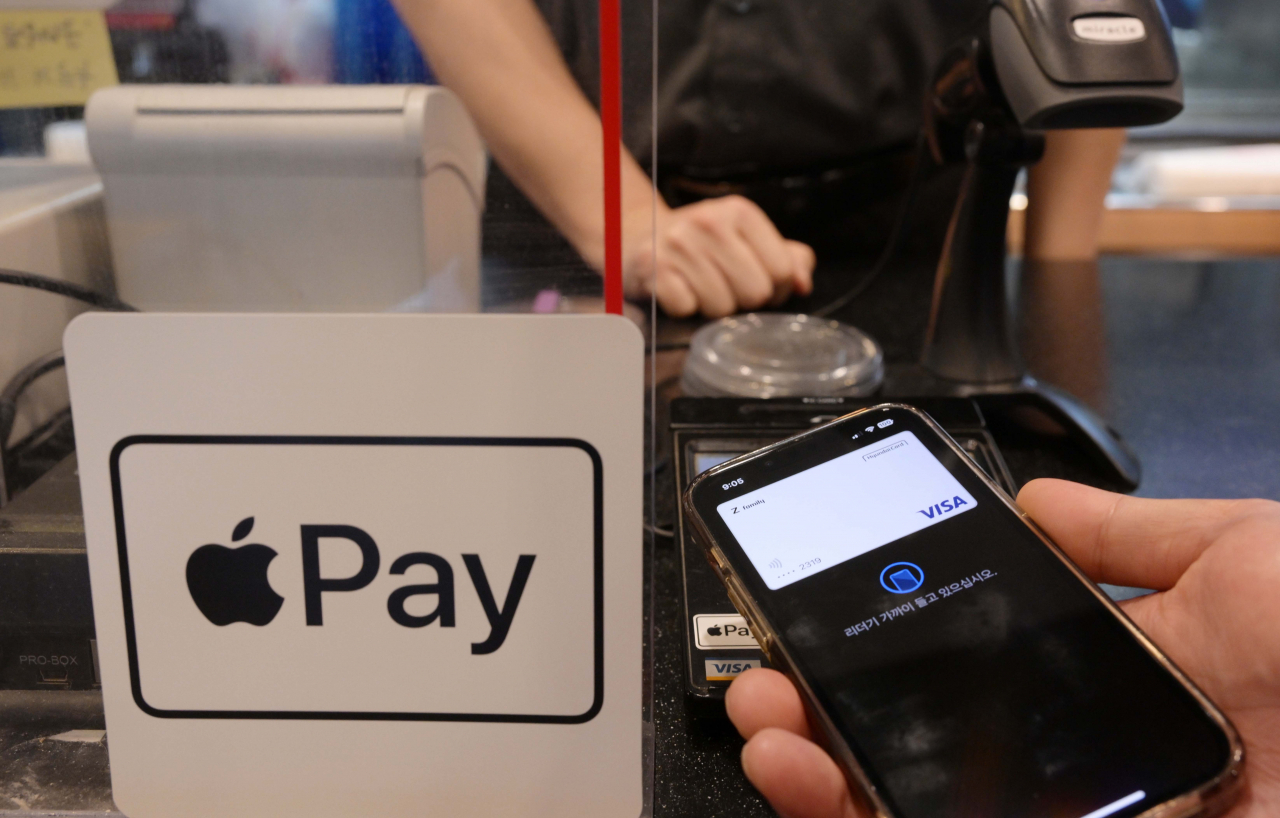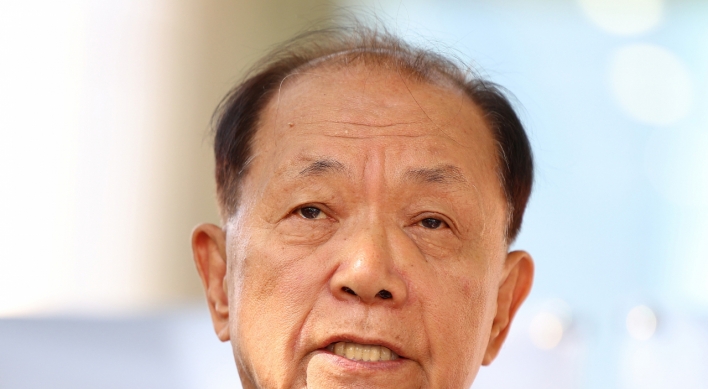[KH Explains] Samsung Pay safe 'for now' as Apple Pay enters Korea
Experts are divided over short-term spread of Apple Pay infrastructure in Korea, but are optimistic on service's long-term prospects with young generation
By Song Seung-hyunPublished : April 11, 2023 - 15:24

Following the initial buzz surrounding Apple Pay's launch in Korea, users have began to discuss the service's limitations.
"Why bother launching a service that customers can't use? I only find it (Apple Pay) useful for paying at convenience stores," said a comment on Asamo, a Naver blog for Apple enthusiasts.
On the blog, another commenter even derisively dubbed Apple Pay "convenience store pay."
Korea was never expected to be an easy market for Apple Pay, partly because more than 70 percent of smartphone users here use Samsung or Android devices, with iPhone users comprising less than 30 percent.
In addition, the lack of infrastructure has been cited as a significant problem, with a limited number of stores equipped with the near-field communication readers needed for the service. Out of approximately 2.9 million stores in Korea, it is estimated that only 60,000 to 70,000 have NFC readers installed.
"Apple's market share is less than 30 percent, and considering the inconvenience that it has now, and also the availability of alternative payment services, it is difficult to anticipate that Apple Pay will capture more than 15 percent of the total payment market in the short term,” said Kim Yong-hee, a research professor at the Graduate School of Digital Image and Contents at Dongguk University.
The lack of infrastructure is the main reason why major local credit card companies are closely observing the initial partnership between Hyundai Card and Apple Pay but have not made any moves yet.
“The key factor for Apple Pay's success in Korea will be the widespread availability of the service,” said a credit card industry official on condition of anonymity.
The official pointed to the lack of NFC readers and the inability to use it for public transportation. Apple has so far not agreed on terms with public transportation payment providers like Tmoney.
According to the Credit Finance Association, Shinhan Card is the largest credit card issuer with 19.6 percent of the market share as of the end of last year, followed closely by Samsung Card with 17.8 percent, Hyundai Card with 16 percent, and KB Kookmin Card with 15.3 percent.
However, experts here say that Samsung should not rest on its laurels.
Seo Ji-yong, a business administration professor at Sangmyung University sees that the spread of Apple Pay will accelerate with the start of "phone-to-phone" payments last week, which he believes will mitigate the lack of infrastructure.
Smartro, a subsidiary of telecom giant KT, released this app, which enables Apple Pay payments at local stores without installing an NFC terminal. It makes it possible for store owners to receive Apple Pay payments simply by downloading an app developed by Smartro on their phones.
According to Samartro, there were over 140,000 downloads of the app from the Google Play Store as of the end of last month.
“The burden of having to install a new NFC card reader, which costs around 200,000 won ($151.81), has been alleviated. While there are still limitations to using Apple Pay, such as its inability to be used for public transportation, it is expected that this issue will also be resolved relatively quickly,” Seo said.
Kim Dae-jong, who is a business administration professor at Sejong University, also shared an optimistic view on Apple Pay's prospects in Korea.
“More than half of the young generation in their teens, 20s, and 30s use iPhones, which is why Apple is expected to become increasingly more popular in the future. The high loyalty of these users is predicted to continue,” Kim said.
Furthermore, Seo speculates that payment companies, such as Samsung Pay, could be considering fees for credit card firms, which he interpreted as their way of anticipating a potential loss in market share with the arrival of Apple Pay in Korea.
Samsung Pay declined to comment on rumors regarding the implementation of fees similar to Apple Pay.






![[KH Explains] No more 'Michael' at Kakao Games](http://res.heraldm.com/phpwas/restmb_idxmake.php?idx=644&simg=/content/image/2024/04/28/20240428050183_0.jpg&u=20240428180321)











![[Herald Interview] Mistakes turn into blessings in street performance, director says](http://res.heraldm.com/phpwas/restmb_idxmake.php?idx=652&simg=/content/image/2024/04/28/20240428050150_0.jpg&u=20240428174656)
